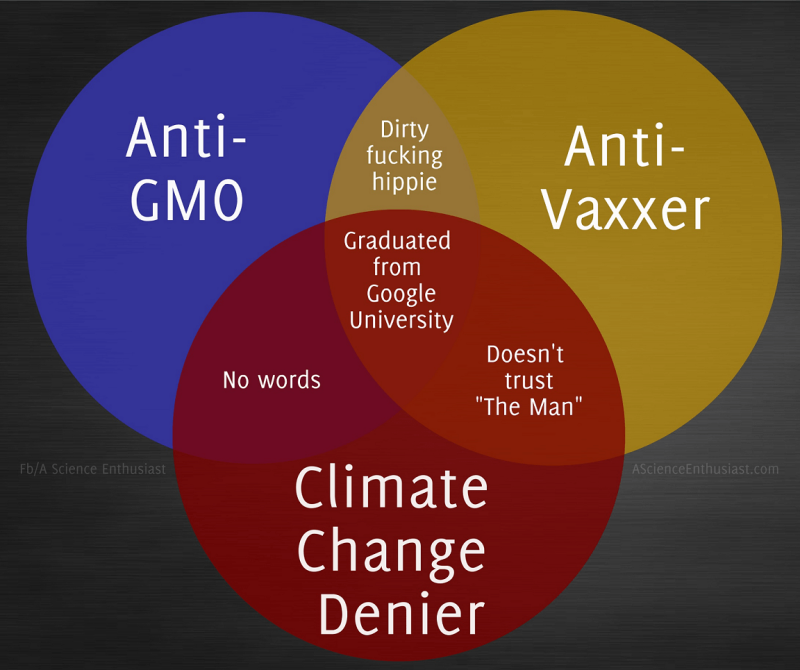The GLP aggregated and excerpted this blog/article to reflect the diversity of news, opinion and analysis.
To understand this “anti-science” skepticism, it’s worth reiterating an obvious point: People generally don’t like being told what to think. . . . We might be anti-intellectual, but we’re quite serious when it comes to trusting our own ideas, even when those ideas are woefully misinformed.
Until relatively recently, though, they weren’t woefully misinformed. America’s founding fathers politically codified our individualist philosophy at a moment in history when 98 percent of the country spent its time laboring on a farm. Being boots-on-the-ground agriculturalists, every free citizen (and their slaves and servants) experienced an ongoing interaction with an environment that provided the raw data for self-styled expertise. . .
As so called “book” farmers introduced scientific methods into traditional agrarian practices, and as those practices culminated in higher yields and larger markets, professors gradually edged out plowmen as the source of agricultural expertise. . .
As expertise slowly transitioned from inside the farmer to outside the farmer, tensions inevitably flared. They flared not so much over agricultural science per se as over the farmers’ relationship to those who defined it. What came to matter was not scientific knowledge about farming but trust of those who possessed that knowledge. . . This tension was never been resolved.
One of the more terrifying aspects of living in the modern world is that we lack the most basic understanding of the technologies that structure our lives. As a result, we have no choice but to trust others — those with real expertise — to make scientific choices that design the wheel we spin on. To be skeptical over what we don’t understand is not anti-science. It’s human.
Read full, original post: How the Term ‘Anti-Science’ Distorts America’s Relationship With Technology































